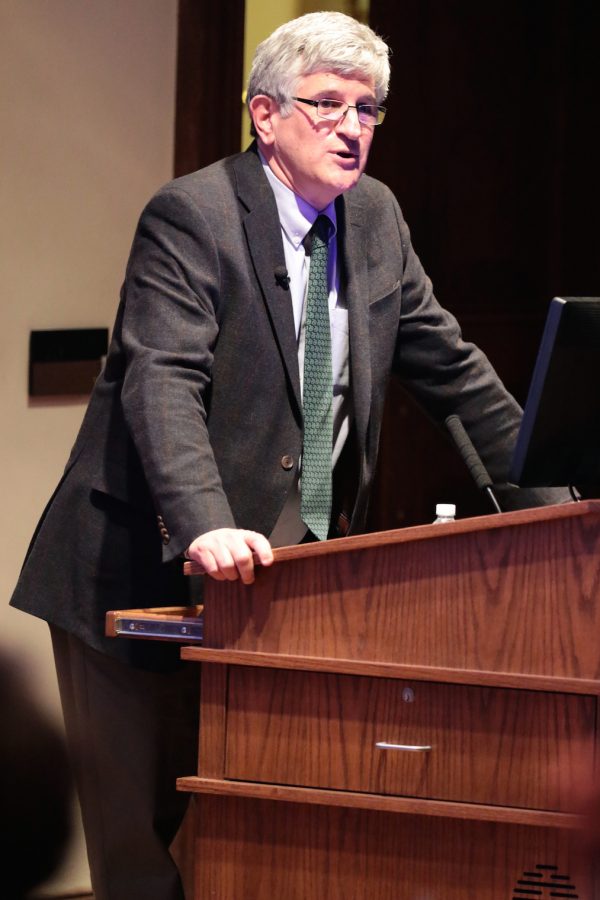World-renowned biologist, pediatrician and advocate of childhood immunizations Paul Offit sat calmly in the Kirby Hall of Civil Rights Library, making candid conversation with his interviewer before the camera started rolling. A flurry of students and faculty rushed to adjust his microphone, shut the doors and fix the lighting. They were running slightly behind schedule.
The production crew was Lafayette Lens, a part of the college’s Policy Studies program. They were interviewing Offit as part of a 15-minute broadcast on autism to be aired on PBS39.
Offit, who has dedicated much of his life in the past 10 years to fighting claims that vaccines cause autism, agreed to be privately interviewed by students for Lafayette Lens before delivering a campus wide lecture at 7 p.m. on Monday. The lecture was sponsored by the Policy Studies program, the Health and Life Sciences Program and the Health Professions Program at Lafayette.
In the interview, Offit spoke with conviction and passion on the myths surrounding vaccines, but was also able to speak charismatically and on a level so everyone could understand the science behind autism and vaccines, professor Nicole Crain said.
He applied those same communication skills to his lecture later that night, which was based primarily on both rejecting the myth that vaccines cause autism and explaining why so many believe this myth that has continually been discounted by medical professionals.
Parents arguing against vaccinations often cite the Centers for Disease Control (CDC) website which does suggest that autism has increased over the last 10 years. The site shows that in 2002, one in 150 children were diagnosed with autism and in 2010 that number rose to one in 68 children.
According to Offit, though, “epidemiological studies don’t prove anything. They just show whether one thing is associated with another,” emphasizing that there is no medical research to support the claim that vaccines cause autism. Offit said that a possible reason for the increase in diagnosis of autism is that the autism spectrum has grown.
“The reason why we can’t find why vaccines cause autism is because it’s not there to be found,” Offit said.
According to Crain, it is understandable why some parents might believe that vaccines caused their children’s autism.
“Parents want to do what’s best for their kids and if you can identify what caused [autism] then you may be able to identify a remedy or something that can alleviate some of the difficulties that kids with autism face,” Crain said.
Offit, although understanding, said that not vaccinating your child is a “fourteenth amendment right issue.”
“It’s always the parents talking about parents’ rights, but what about children? They have rights too. Children’s lives matter,” he said.
According to Offit, 17 states have philosophical exemptions to vaccines and 47 states have religious exemptions, meaning that if parents decide vaccinations are against their philosophical or religious beliefs, they do not have to vaccinate their children.
Last year, California made headlines when too many people decided not to vaccinate their children. This lead to a measles outbreak in Disneyland that affected 147 people, according to NBC News. Since the outbreak, California has taken away philosophical and religious exemptions, forcing parents to vaccinate their children unless they have a medical exemption.
“I think it’s a profoundly unreligious thing to do to not vaccinate your children,” Offit said during the lecture. “Science is not a belief system, it’s an evidence system.”























































































































